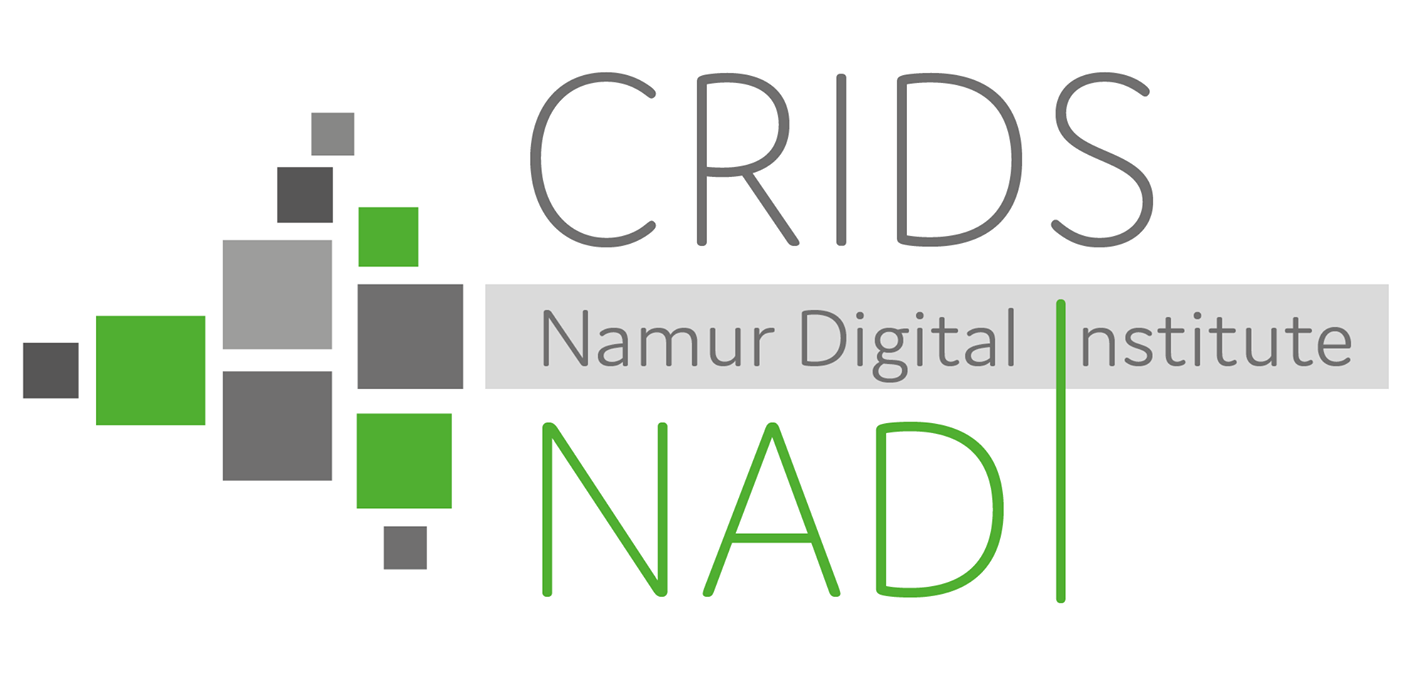Intellectual Property

The Intellectual Property (IP) Research Unit at CRIDS focuses on legal appropriation regimes, defined as the institutional frameworks that govern the control of resources within society, in relation to intangible assets. These legal structures affect the capacity of certain actors to appropriate immaterial resources through both practical and technical means.
The research agenda of the IP Unit primarily examines classical IP rights—copyright, patents, trademarks design and sui-generis right (such as the protection of databases)—which reinforce the holders’ factual position by granting them exclusive control over certain intangible assets. However, our exploration extends beyond these conventional IP rights to encompass additional legal frameworks. These frameworks either strengthen the position of rights holders by prohibiting certain forms of appropriation (such as unfair competition, trade secret protection, and personal data rights) or diminish it by imposing access rights in favour of third parties or society at large.
The rapid advance of technology—characterized by digitalization, datafication, enhanced computational capabilities, the rise of AI tools, or breakthroughs in genome editing—coupled with economic transformations such as the globalization of production and distribution, the platformization of the economy, and the emergence of digital goods, raises critical questions about the sustainability and responsiveness of our current legal system.
In this context, our primary research themes include: the regimes governing data appropriation and access; legal challenges posed by AI technologies (such as the use of protected content as input and the need for access/disclosure rights regarding AI models); contractual frameworks and their interplay with the legal appropriation regimes; the liabilities of online intermediaries; developments in the Domain Name System, questions related to the enforcement of appropriation regimes; web archiving; and competition issues stemming from standardization processes. Additionally, we investigate broader concerns, such as the impact of fundamental rights law on legal appropriation regimes, and the implications of internationalization efforts (including the establishment of the Unified Patent Court and Unified Patent within the EU).
The IP Research Unit engages in both fundamental and applied research within a multidisciplinary environment. We are part of the Namur Digital Institute (NaDI), which unites research centers at the University of Namur focused on digital innovation. We also collaborate with the "Vulnerabilities and Societies" (V&S) Research Center, which employs an interdisciplinary approach to explore the nexus between societal vulnerabilities and challenges.
Our team comprises academics, legal practitioners, and both junior and senior researchers who not only specialize in IP law but also possess practical experience and expertise in digital technologies. This enables the unit to be highly specialised on the interactions of these fields of IP law with these technologies.
Head of Unit
Members
- Chloé Antoine
- Alexandre Cruquenaire
- Jean-Benoît Hubin
- Manon Knockaert
- Elodie Lecroart
- Michèle Ledger
- Michael Lognoul
- Martin Rappe
- Zorana Rosic
- François Wéry
Latest publications
W. VAN CAENEGEM, L. DESAUNETTES-BARBERO, Trade Secrets and Intellectual Property : Policy, Theory and Comparative Analysis, Alphen Aan Den Rijn, Kluwer Law international, 2025, 523 p.
A. STROWEL, S. FESTOR DE SUREMAIN, M. RAPPE « La communication au public selon le droit d’auteur : quand les avions, trains, logements touristiques… permettent à la Cour de justice d’emprunter des chemins connus, parfois sinueux », Nouveautés en droit intellectuel : évolutions récentes et implications pratiques, Collection du jeune barreau de Bruxelles, Bruxelles, Larcier-Intesentia, 2025, pp. 9-30
L. DESAUNETTES-BARBERO, « L’appréhension de la portabilité de la réputation en ligne par le droit, une étude analytique et critique », Revue française d’économie, Vol. XXXIX, n°2, 2024, pp. 153-191.
L. DESAUNETTES-BARBERO, « Needs and Challenges of a Responsive IP System », Kreation Innovation Märkte – Creation Innovation Markets, Berlin, Springer, 2024, pp. 861-882.
C. ANTOINE, « Le droit sui generis, un droit applicable aux bases de données générées par des machines ? », R.D.T.I., 2024, n°95, pp. 91-114.
C. ANTOINE, H. JACQUEMIN, « L’articulation du RGPD avec l’EU Digital Package (DSA, DORA, DA et AIA) : premiers enseignements dans le secteur des assurance », Protection des données en assurances : bilan après six années d’application du RGPD, Malines, Wolters Kluwer, 2024, pp. 255-292.
Key publications
Books & Studies
W. VAN CAENEGEM, L. DESAUNETTES-BARBERO, Trade Secrets and Intellectual Property : Policy, Theory and Comparative Analysis, Alphen Aan Den Rijn, Kluwer Law international, 2025, 523 p.
L. DESAUNETTES-BARBERO, F. DE VISSCHER, A. STROWEL, V. CASSIERS, The unitary patent package et Unified Patent Court : problems, possible improvements and alternatives, Milan, Ledizioni, 2023, 501 p.
L. DESAUNETTES-BARBERO, Trade Secrets Legal Protection : From a Comparative Analysis of Us and EU Law to a New Model of Understanding, Berlin, Springer, 2023, 501 p.
L. DESAUNETTES-BARBERO, et al., Study on Copyright and New Technologies : Copyright Data Management and Artificial Intelligence, Brussels, European Commission, 2022, 355 p.
A. CRUQUENAIRE, Le contentieux des nouveaux noms de domaine (new gTLDs), Waterloo, Kluwer, 2015, 168 p.
Articles and contributions
C. ANTOINE, « Le droit sui generis, un droit applicable aux bases de données générées par des machines ? », R.D.T.I., 2024, n°95, pp. 91-114.
L. DESAUNETTES-BARBERO, « Needs and Challenges of a Responsive IP System », Kreation Innovation Märkte – Creation Innovation Markets, Berlin, Springer, 2024, pp. 861-882.
L. DESAUNETTES-BARBERO, « L’appréhension de la portabilité de la réputation en ligne par le droit, une étude analytique et critique », Revue française d’économie, Vol. XXXIX, n°2, 2024, pp. 153-191.
M.-C. JANSSENS, B. MICHAUX, « Intellectual property rights : copyright and trademark issues », Electronic communications, audiovisual services and the Internet, London, Sweet and Maxwell, 2020, pp. 393-440.
B. MICHAUX, M. LOGNOUL, F. JACQUES, « Le droit d’auteur dans le marché numérique», Actualités en droit du numérique, Recyclage en droit, n° 2, Limal, Anthemis, 2019, pp. 7-52.
M. KNOCKAERT, T. TOMBAL, « Quels droits sur les données ? », Actualités en droit du numérique, Recyclage en droit, n° 2, Limal, Anthemis, 2019, pp. 7-52.
M. KNOCKAERT, « La réutilisation des informations du secteur public : l'open data et les organismes publics », J.T., 2018, pp. 613-621.
A. CRUQUENAIRE , A. DELFORGE, J.B. HUBIN, M. KNOCKAERT, B. MICHAUX, T. TOMBAL, « Droit d'auteur et oeuvres générées par machine », L’intelligence artificielle et le droit, Collection du CRIDS, n° 41, Bruxelles, Larcier, 2017, pp. 189-240.





